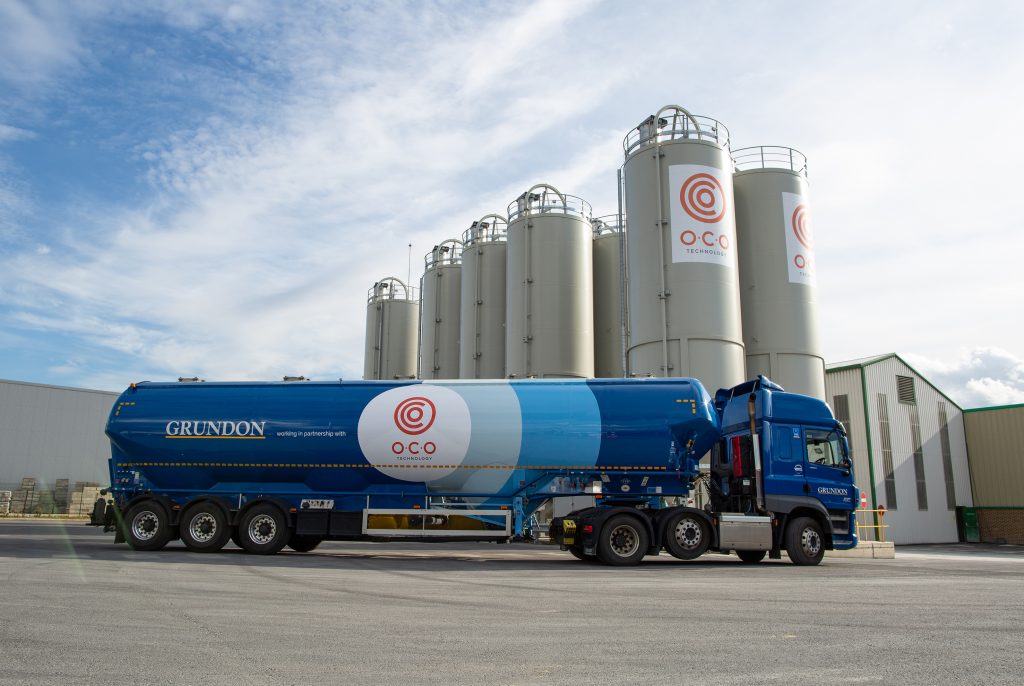O.C.O Technology chosen as Mitsubishi Corporation’s sole UK partner in global drive to cut greenhouse gas emissions to net zero by 2050
A new Green Concrete Consortium launched by Japan’s Mitsubishi Corporation has hand-picked O.C.O Technology as one of only four global companies to deliver its goal of transforming CO2 into carbon negative concrete and aggregates.
Work has already begun on a project in Japan to assess the potential for carbonating new waste materials, including slag waste from steel processing plants.
In a second important move, O.C.O has also applied to be part of a new voluntary carbon credit offset programme being spearheaded by Microsoft and other industry leaders.
Stephen Roscoe, O.C.O’s Technical Director, said: “These opportunities are a huge step forward and put us firmly in the driving seat to demonstrate the role that carbon capture, through the mineralisation of CO2, can play in combating climate change.
“We are delighted to be part of the Consortium and partnering with a global industrial giant like Mitsubishi is a fantastic opportunity for O.C.O. Mitsubishi is also supporting our proposal to participate in the Microsoft carbon credit purchase programme and these two projects show how UK technology is delivering success on a global scale.
“Using carbon dioxide to transform unwanted waste materials into new carbon negative products is a perfect example of the circular economy in action. It reduces the need for natural aggregates and above all, it enables significant volumes of CO2 to be taken out of the atmosphere – something we all need to work towards to improve the future sustainability of our planet.”
O.C.O, which has operations in Leeds, Avonmouth and Suffolk, was the first company in the world to successfully commercialise the Accelerated Carbonation Technology (ACT) process, enabling the permanent capture of significant amounts of carbon dioxide.
So far it has used the technology to treat Air Pollution Control residues (APCr) from the Energy from Waste sector, using CO2 to create artificial limestone aggregates which have already been used in around 21 million building blocks – equivalent to nearly 8,000 three-bedroom houses.
Joining forces with Mitsubishi Corporation’s Green Concrete Consortium, billed as a combination of carbon capture and utilisation (CCU) mineralisation projects, is enabling the O.C.O team to ramp up development of its technology.
Once initial laboratory tests in Japan are complete, the next stage will be to analyse the processed steel slags in the O.C.O laboratory in Avonmouth, followed by a move to larger scale commercial trials in Japan.
At the same time, O.C.O’s success story has been recognised by Mitsubishi Corporation and its partner carbon project developer South Pole, which responded to Microsoft’s Request for Proposals (RFP) last summer as part of the technology giant’s search for carbon removal projects.
Microsoft has already announced its own goal of being carbon negative by 2030 and, if the South Pole proposal is successful, it is hoped that O.C.O’s Leeds facility will become a recognised carbon credit offset option for Microsoft. The verification procedures for the Microsoft bid, together with yet to be announced new initiatives in carbon credit trading, will allow the Mitsubishi Corporation / South Pole / O.C.O partnership to offer carbon credits to other companies keen to offset their carbon emissions.
Speaking at the recent virtual Davos meeting of global business and political leaders, Microsoft co-founder Bill Gates said money from the sale of offsets could help to support the rapid growth of innovations such as low-carbon cement. UN climate envoy and former governor of the Bank of England Mark Carney, who launched the Taskforce on Scaling Voluntary Carbon Markets in 2020, has already revealed plans to vastly increase the number of carbon offsets sold, a project that the Green Concrete Consortium is also keeping a close watch on, with Mitsubishi Corporation a consulting member of the Task Force.

